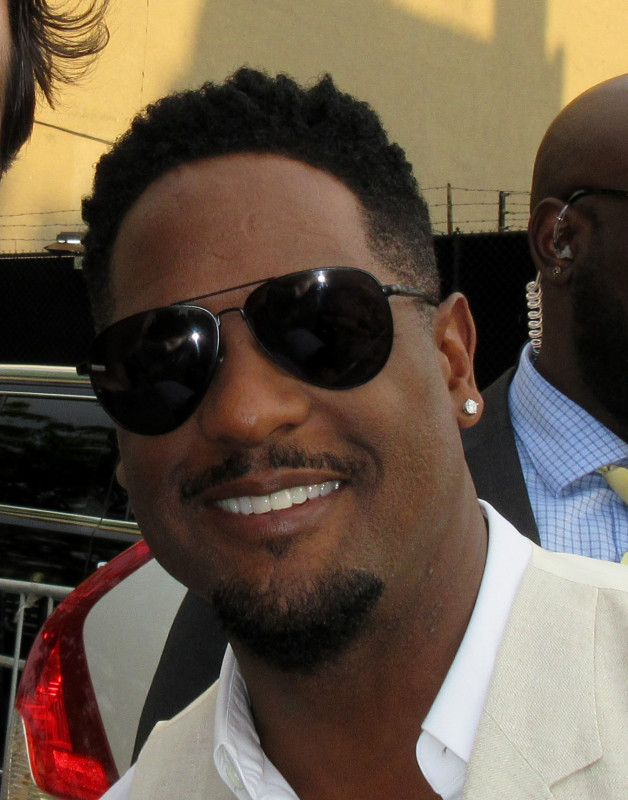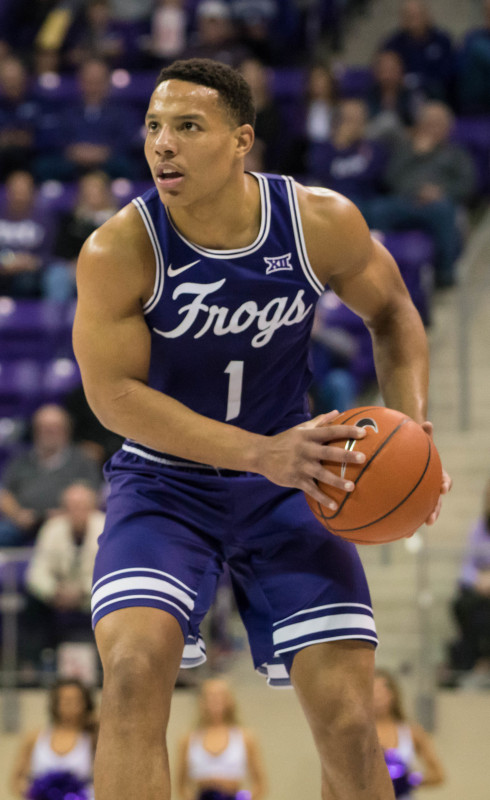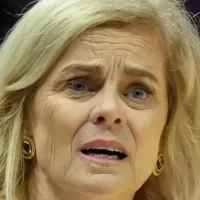Fiji, officially the Republic of Fiji, is an island country in Melanesia, Oceania, located in the South Pacific Ocean, approximately 1,100 nautical miles north-northeast of New Zealand. It comprises over 330 islands, with about 110 permanently inhabited, and more than 500 islets, totaling around 18,300 square kilometers. The majority (87%) of the population resides on the two main islands, Viti Levu and Vanua Levu. Three-quarters of Fijians live on Viti Levu's coasts, primarily in Suva, Nadi, or Lautoka. The interior of Viti Levu is sparsely populated due to its difficult terrain.
1914: Apolosi Nawai founded Viti Kabani
In 1914, Apolosi Nawai founded Viti Kabani, a co-operative company that would legally monopolise the agricultural sector and boycott European planters, marking a significant moment in Fijian Tuka resistance.
1915: Arrest of Apolosi and followers
In 1915, Apolosi and his followers were arrested, leading to the collapse of the Viti Kabani. This was due to the British and their proxy Council of Chiefs sending in the Armed Native Constabulary.
1916: End of Indian indentured labour scheme
In 1916, the scheme to import indentured labourers from India to work on sugarcane fields ended. This scheme had started in 1878 and brought approximately 61,000 Indians to Fiji.
1916: End of Indian Indentured Labourers movement to Fiji
In 1916, the steady influx of ships carrying indentured Indians to Fiji ceased. From 1879 and 1916, tens of thousands of Indians moved to Fiji to work as indentured labourers, especially on sugarcane plantations.
September 1917: Count Felix von Luckner arrived at Wakaya Island
In September 1917, Count Felix von Luckner arrived at Wakaya Island after his raider, SMS Seeadler, ran aground. On 21 September, he surrendered to the district police inspector and a number of Fijians, not realising they were unarmed.
1917: Collapse of Viti Kabani
In 1917, the Viti Kabani collapsed after the arrest of Apolosi and his followers in 1915.
1921: Ratu Sir Lala Sukuna returned to Fiji
In 1921, a great-grandson of Cakobau, who had served in the French Foreign Legion and obtained a law degree from Oxford University, returned to Fiji. He would later be known as Ratu Sir Lala Sukuna and became the country's first university graduate and a war hero.
1932: Mr Robinson Crusoe Movie Filmed in Fiji
In 1932, Fiji served as a location for the Hollywood movie Mr Robinson Crusoe.
1946: Death of Apolosi Nawai
Apolosi Nawai was viewed as a threat by the British right up to his death in 1946.
July 1965: Constitutional conference held in London
In July 1965, a constitutional conference was held in London to discuss constitutional changes aimed at introducing responsible government. Indo-Fijians demanded immediate self-government, which was rejected by the ethnic Fijian delegation.
1967: Cabinet system of government established
In 1967, a series of compromises led to the establishment of a cabinet system of government, with Ratu Kamisese Mara as the first Chief Minister.
1969: Sidiq Koya took over leadership
In 1969, Sidiq Koya took over the leadership of the mainly Indo-Fijian National Federation Party after Patel's death.
April 1970: Second constitutional conference in London
In April 1970, a second constitutional conference was held in London, where Fiji's Legislative Council agreed on a compromise electoral formula and a timetable for independence within the Commonwealth.
October 1970: Fiji gains Independence
In October 1970, the British flag was lowered, and the Fijian flag was raised as Fiji officially became independent.
1970: Fiji gained independence
In 1970, Fiji gained independence and became known as the Dominion of Fiji, after operating as a Crown colony under British rule.
1970: British granted Fiji independence
In 1970, the British granted Fiji independence.
1970: Restoration of the 1970 constitution
The Group Against Racial Discrimination (GARD) was formed to restore the 1970 constitution after it had been unilaterally imposed.
1976: Inception of Hong Kong Sevens
Since its inception in 1976, Fiji has won the Hong Kong Sevens a record eighteen times.
1980: The Blue Lagoon Movie Filmed in Fiji
In 1980, the movie The Blue Lagoon starring Brooke Shields was filmed in Fiji.
1986: Fiji at the 1986 World Exposition
Fiji's culture was showcased at the World Exposition held in Vancouver, Canada, in 1986.
1987: Military coups in Fiji
In 1987, Fiji experienced two military coups precipitated by a perception of Indo-Fijian dominance in the government.
1987: 1987 Rugby World Cup
In 1987, the Fiji national rugby union team reached the quarter-finals of the Rugby World Cup.
1987: The 1987 coup d'état
Sitiveni Rabuka carried out the 1987 coup, which resulted in political and social change in Fiji.
1987: Coups Caused Further Contraction
The coups of 1987 caused further economic contraction in Fiji.
1990: New constitution institutionalised
In 1990, the new constitution institutionalised ethnic Fijian domination of the political system.
1991: Pacific Games football tournament in 1991
Fiji won the Pacific Games football tournament in 1991.
1991: Return to the Blue Lagoon Movie Filmed in Fiji
In 1991, the movie Return to the Blue Lagoon with Milla Jovovich was filmed in Fiji.
1992: Sitiveni Rabuka became Prime Minister
In 1992, Sitiveni Rabuka became Prime Minister following elections held under the new constitution.
1992: Participation in international competition since 1992
The Fiji national rugby league team has been participating in international competition since 1992.
1996: Indo-Fijian Christians in 1996
In the 1996 census, Christians of all kinds comprised 6.1% of the Indo-Fijian population in Fiji.
1997: Official Languages under the 1997 constitution
In 1997, Fiji had three official languages under the constitution: English, Fijian (iTaukei), and Hindi.
1997: Mahendra Chaudhry became Prime Minister
In 1997, Mahendra Chaudhry became the country's first Indo-Fijian Prime Minister following the adoption of the new constitution.
1997: New constitution written
In 1997, a new constitution was written by the Constitutional Review Commission and supported by most leaders of the indigenous Fijian and Indo-Fijian communities.
1997: Country name changed to Republic of the Fiji Islands
In 1997, the country's name was changed from Republic of Fiji to Republic of the Fiji Islands.
1997: English as an Official Language
Until 1997, English was the sole official language in Fiji.
1999: Netball World Cup Achievement in 1999
The national netball team of Fiji reached 6th position in the Netball World Cup competitions in 1999, its highest level to date.
2000: Coup of 2000
In 2000, Indo-Fijians suffered reprisals for a period after the coup.
2000: Coup instigated by George Speight
In 2000, a coup was instigated by George Speight, which effectively toppled the government of Mahendra Chaudhry. Later in 2000, Fiji was rocked by two mutinies at Suva's Queen Elizabeth Barracks.
2000: Cast Away Movie Filmed in Fiji
In 2000, the movie Cast Away was filmed in Fiji.
2000: Aftermath of the 2000 coup
In 2000, victims of the 2000 coup were proposed to be given compensations and amnesty to its perpetrators.
2000: A bill was put forward to parliament
In December 2006, Bainimarama handed down a list of demands to Qarase after a bill was put forward to parliament that would have offered pardons to participants in the 2000 coup attempt.
2000: Motivation for the coup
In December 2006, the military takeover was partially motivated by pending legislation to pardon those involved in the 2000 coup.
September 2001: General election held
In September 2001, a general election was held to restore democracy, which was won by interim Prime Minister Laisenia Qarase's Soqosoqo Duavata ni Lewenivanua party.
2003: Pacific Games football tournament in 2003
Fiji won the Pacific Games football tournament in 2003.
2003: Former Military Personnel Served in Iraq
Following the 2003 U.S.-led invasion, a significant number of former military personnel served in the lucrative security sector in Iraq.
2003: Tourism Reaches 430,800
In 2003, Fiji's tourist industry grew with tourists numbering 430,800, becoming a major source of foreign exchange.
2004: Anacondas: The Hunt for the Blood Orchid Movie Filmed in Fiji
In 2004, the movie Anacondas: The Hunt for the Blood Orchid was filmed in Fiji.
2005: Proposed Reconciliation and Unity Commission
In 2005, the Qarase government proposed a Reconciliation and Unity Commission, which faced strong opposition from the military.
December 2006: Bainimarama instrumental in Fijian coup d'état
In December 2006, Bainimarama was instrumental in the 2006 Fijian coup d'état after Qarase refused to accede to demands, including pardons for participants in the 2000 coup attempt. On 5 December, President Iloilo dissolved the parliament.
December 2006: Military takeover by Bainimarama
On 5 December 2006, Bainimarama staged a military takeover, citing corruption and conflict with Prime Minister Qarase. He dissolved parliament and named Jona Senilagakali as caretaker prime minister, paving the way for the military to continue the takeover. The coup was partially motivated by pending legislation to pardon those involved in the 2000 coup.
2006: Coup
Following the 2006 coup, the Commonwealth of Nations demanded that Bainimarama hold elections by 2010.
2006: Commodore Bainimarama seized power
In 2006, Commodore Frank Bainimarama seized power in a coup.
January 2007: Iloilo restored and Bainimarama appointed
On 4 January 2007, the military announced the restoration of executive power to Iloilo. The next day, Iloilo named Bainimarama as the interim prime minister, indicating continued military control.
2007: Religious Demographics in 2007
As of 2007, among Christians in Fiji, 54% were counted as Methodist, followed by 14.2% Catholic, 8.9% Assemblies of God, 6.0% Seventh-day Adventist, 1.2% Anglican with the remaining 16.1% belonging to other denominations.
2007: Population of Fiji
In 2007 census the population of Fiji was 837,271.
2007: Government Expenditure on R&D
In 2007, agriculture and primary production accounted for just under half of government expenditure on R&D, according to the Fijian National Bureau of Statistics.
2007: Great Council of Chiefs suspended
In 2007, the Great Council of Chiefs was suspended by the military-backed interim government.
2007: 2007 Rugby World Cup
In the 2007 Rugby World Cup, Fiji upset Wales and progressed to the quarter-finals, where they lost to South Africa.
2007: Pacific Games Gold Medals in 2007
The Fiji netball team won gold medals at the Pacific Games in 2007.
August 2008: Proposal to change the name of Fiji's citizens
In August 2008, it was announced that the People's Charter for Change, Peace and Progress recommended that all citizens of Fiji, whatever their ethnicity, would be called "Fijians".
2008: 2008 OFC Nations Cup
In the 2008 OFC Nations Cup, the Fiji national football team defeated New Zealand 2–0, on their way to a joint-record third-place finish.
2008: 2008 Rugby League World Cup Semi-Final Appearance
The Fiji national rugby league team made a semi-final appearance in the 2008 Rugby League World Cup.
April 2009: Constitutional crisis address
During the constitutional crisis of April 2009, military leader and interim Prime Minister Voreqe Bainimarama addressed the nation regarding the definition of "Fijian".
April 2009: Former constitution was abrogated
In April 2009 the former constitution was abrogated and the Public Emergency Regulations (PER) were put in place.
April 2009: Fiji Court of Appeal Overturns High Court Decision
In April 2009, the Fiji Court of Appeal overturned the High Court's decision, ruling that Bainimarama's takeover of Qarase's government was unlawful and declaring the interim government illegal. President Iloilo subsequently abrogated the constitution, removed all office holders, and reappointed Bainimarama as interim prime minister, imposing a "Public Emergency Regulation".
May 2009: Fiji Suspended from Pacific Islands Forum
On 2 May 2009, Fiji became the first nation ever to be suspended from participation in the Pacific Islands Forum due to its failure to hold democratic elections by the promised date. Fiji remained a member of the Forum despite the suspension.
September 2009: Fiji Suspended from Commonwealth of Nations
In September 2009, Fiji was suspended from the Commonwealth of Nations because Bainimarama failed to hold elections by 2010 as demanded after the 2006 coup. Bainimarama cited the need for more time to reform the voting system, while critics alleged human rights violations.
2009: Samoa's departure from the Pacific Islands Rugby Alliance
In 2009, Samoa announced their departure from the Pacific Islands Rugby Alliance, leaving just Fiji and Tonga in the union.
2009: Military leadership ruled unlawful
In 2009, the Fijian High Court ruled that the military leadership was unlawful, leading to President Iloilo formally abrogating the 1997 Constitution and re-appointing Bainimarama as interim prime minister. Later in 2009, Ratu Epeli Nailatikau succeeded Iloilo as president.
May 2010: Debate over the term "Fijian"
In May 2010, Attorney-General Aiyaz Sayed-Khaiyum reiterated that the term "Fijian" should apply to all Fiji nationals, but the statement was again met with protest.
2010: Fiji at the 2010 Shanghai World Expo
Fiji showcased its culture at the Shanghai World Expo in 2010, along with other Pacific countries in the Pacific Pavilion.
2010: Commonwealth of Nations demanded elections
In 2010 the Commonwealth of Nations had demanded elections after the 2006 coup, however Bainimarama failed to hold elections.
2010: Bainimarama announces the lifting of the Public Emergency Regulations (PER)
In his 2010 New Year's address, Bainimarama announced the lifting of the Public Emergency Regulations (PER).
February 2011: Official Name Reverted to Republic of Fiji
In February 2011, the official name of the country was reverted to the Republic of Fiji.
January 2012: Public Emergency Regulations Rescinded
In January 2012, the Public Emergency Regulations (PER), which had been in place since April 2009 following the abrogation of the former constitution, were rescinded. The Suva Philosophy Club was the first organization to reorganize and convene public meetings after the PER had restricted speech, public gatherings, and news media censorship.
2012: GERD/GDP Ratio
In 2012, Fiji's national Bureau of Statistics cited a GERD/GDP ratio of 0.15%.
2012: Great Council of Chiefs abolished
In 2012, the Great Council of Chiefs was abolished.
2012: Visitors for Holidays/Vacation
Official statistics show that in 2012, 75% of visitors stated that they came to Fiji for a holiday/vacation.
2012: Fiji Journal of Public Health Launched
The Fijian Ministry of Health launched the Fiji Journal of Public Health in 2012 to develop endogenous research capacity.
2013: Languages under the 2013 Constitution
As of 2013, Fiji has three official languages under the constitution: English, Fijian (iTaukei), and Hindi.
2013: European Union funded the EPIC programme
From 2013 to 2017, the European Union funded the EPIC programme, which developed two master's programmes in renewable energy management, one at the University of Papua New Guinea and the other at the University of Fiji, both accredited in 2016.
2013: 2013 Rugby League World Cup Semi-Final Appearance
The Fiji national rugby league team made a semi-final appearance in the 2013 Rugby League World Cup.
March 2014: Commonwealth Ministerial Action Group Changes Fiji's Suspension
On 14 March 2014, the Commonwealth Ministerial Action Group voted to change Fiji's full suspension from the Commonwealth of Nations to a suspension from the councils of the Commonwealth, allowing participation in certain activities, including the 2014 Commonwealth Games.
September 2014: General Election
A general election took place on 17 September 2014. Bainimarama's FijiFirst party won with 59.2% of the vote, and the election was deemed credible by a group of international observers.
September 2014: Suspension Lifted
In September 2014, Fiji's suspension from the Commonwealth of Nations was lifted.
2014: Elections held under a new constitution
In 2014 elections were held under a new constitution after a nationwide consultation process.
2014: Centre of Renewable Energy Becomes Operational
In 2014, the Centre of Renewable Energy became operational at the University of Fiji, with assistance from the Renewable Energy in Pacific Island Countries Developing Skills and Capacity programme (EPIC) funded by the European Union.
2014: FijiFirst party wins outright majority in the country's 51-seat parliament
In the 2014 election, the FijiFirst party, led by Prime Minister Frank Bainimarama, won outright majority in the country's 51-seat parliament.
December 2015: IRB ranking as of December 2015
As of December 28, 2015, Fiji's national rugby union team was ranked eleventh in the world by the IRB.
2015: Potential to Expand Renewable Energy Options
In 2015, the Secretariat of the Pacific Community observed that there is enormous potential to expand the deployment of other renewable energy options such as solar, wind, geothermal and ocean-based energy sources in Fiji.
2015: Pacific Games Gold Medals in 2015
The Fiji netball team won gold medals at the Pacific Games in 2015.
2016: 2016 Summer Olympics Qualification
Fiji qualified for the 2016 Summer Olympics men's tournament for the first time in history.
2016: Master's programmes accredited
In 2016 the two master's programmes in renewable energy management, one at the University of Papua New Guinea and the other at the University of Fiji, were accredited.
2016: Fiji wins gold at the 2016 Summer Olympics
In 2016, Fiji won its first ever Olympic medal by winning gold in Rugby sevens at the Summer Olympics, defeating Great Britain 43–7 in the final.
2016: Survivor Filmed in Mamanuca Islands
Since its 33rd season in 2016, the U.S. version of the reality television show Survivor has filmed all of its semiannual seasons in the Mamanuca Islands.
2017: 2017 Census: Religious Demographics
According to the 2017 census, 69.2% of the population in Fiji was Christian, while 24.0% was Hindu, 5.8% Muslim, and 1.04% belonged to other religions including Sikhism.
2017: European Union funded the EPIC programme
From 2013 to 2017, the European Union funded the EPIC programme, which developed two master's programmes in renewable energy management, one at the University of Papua New Guinea and the other at the University of Fiji, both accredited in 2016.
2017: Population of Fiji
The 2017 census found that the population of Fiji was 884,887.
2018: Forest Landscape Integrity Index
In 2018, Fiji had a Forest Landscape Integrity Index mean score of 8.35/10, ranking it 24th globally out of 172 countries.
2018: FijiFirst Wins Election
In the 2018 election, FijiFirst won with 50.02 per cent of the total votes cast. It held its outright majority in the parliament, winning 27 of the 51 seats. The Social Democratic Liberal Party (SODELPA) came in second with 39.85 per cent of the vote.
2018: FijiFirst party narrowly wins majority in the country's 51-seat parliament
In the 2018 election, the FijiFirst party, led by Prime Minister Frank Bainimarama, narrowly won outright majority in the country's 51-seat parliament.
2019: A related diploma programme introduced
In 2019 a related diploma programme was introduced, in Fiji, 45 students have enrolled for the master's degree since the launch of the programme and a further 21 students have undertaken a related diploma programme.
2019: 2019 Rugby League World Cup Semi-Final Appearance
The Fiji national rugby league team made a semi-final appearance in the 2019 Rugby League World Cup.
2020: Regional Pacific Nationally Determined Contributions Hub Office Launched
In 2020, the Regional Pacific Nationally Determined Contributions Hub Office in Fiji was launched to support climate change mitigation and adaptation.
October 2021: Ratu Wiliame Katonivere Elected President
In October 2021, Tui Macuata Ratu Wiliame Katonivere was elected as the new President of Fiji by the parliament.
December 2022: Sitiveni Rabuka Becomes Prime Minister
On 24 December 2022, Sitiveni Rabuka, the head of the People's Alliance (PAP), became Fiji's 12th prime minister, succeeding Bainimarama, following the December 2022 general election.
2022: FijiFirst Loses Majority
In the 2022 election, FijiFirst lost its parliamentary majority. Sitiveni Rabuka of People's Alliance party, with the backing of the Social Liberal Democratic party (Sodelpa), became Fiji's new Prime Minister to succeed Frank Bainimarama.
2024: Global Hunger Index
In 2024, Fiji's score on the Global Hunger Index (GHI) is 10.2, which indicates a moderate level of hunger.
2050: Fiji Aiming for Net-Zero Emissions
Fiji, as a party to the Kyoto Protocol and the Paris Climate Agreement, hopes to achieve net-zero emissions by 2050 to mitigate the impacts of climate change.
Mentioned in this timeline

Brooke Shields is an American actress and model who began...
India officially the Republic of India is a South Asian...
New Zealand is an island country in the southwestern Pacific...
Hong Kong is a densely populated special administrative region of...
Iraq officially the Republic of Iraq is a West Asian...

News encompasses information about current events disseminated through various media...
Trending

15 minutes ago Blair Underwood Discusses Fame, Staying True, and Almost Passing on 'Set It Off'

15 minutes ago Zach Braff reflects on Scrubs' return and auditioning six times 25 years ago.

16 minutes ago Embiid Probable, Powell's Status Uncertain for Sixers-Heat Game: Injury Report Details
16 minutes ago Ghosts Season 5 Premieres: New Spirits and More Laughs on Paramount+

17 minutes ago Desmond Bane, Anthony Edwards Fined $25K by NBA for Throwing Balls

1 hour ago Kim Mulkey's LSU Tigers: NCAA Tournament Seeding Possibilities and AP Poll Ranking
Popular

Jesse Jackson is an American civil rights activist politician and...

Susan Rice is an American diplomat and public official prominent...

Barack Obama the th U S President - was the...

XXXTentacion born Jahseh Dwayne Ricardo Onfroy was a controversial yet...

Michael Joseph Jackson the King of Pop was a highly...

Kashyap Pramod Patel is an American lawyer who became the...